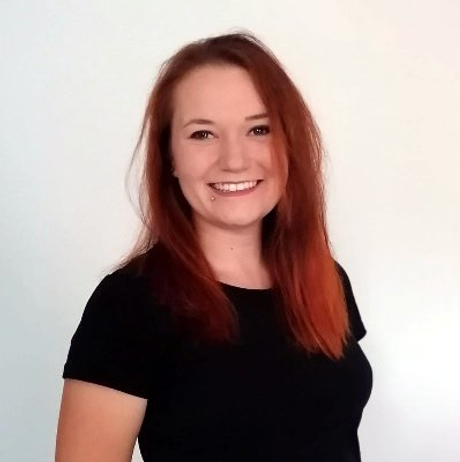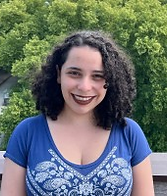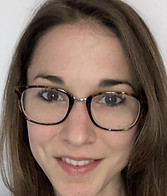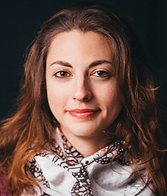
GENOMIC TECHNOLOGIES AND IMMUNO-GENOMICS
Our Research
Our research group focuses on the development and application of the latest genomic technologies to understand (rare) human diseases. A particular emphasis is put on the understanding of genetic defects that explain (rare) immune diseases, collectively known as inborn errors of immunity (IEIs).
Our research group combines expertise in genomics, genomic technologies, rare diseases, and immunology. We are affiliated with the Department of Human Genetics and the Department of the Internal Medicine of the RadboudUMC in Nijmegen, as well as the RadboudUMC Research Institute for Medical Innovations (RIMI). Additionally, our research group is involved in the Radboudumc research programs “Genomics of Rare Diseases (GRD)” and "Innate immunity in health and diseases".
TEAM

Group leader, PI, Professor Genomic Technologies for Immune-Mediated and Infectious Diseases
Alex studied biology in Bonn, Germany, where he also received his PhD in human genetics. Since 2007 Alex works at the Radboud University Medical Center, Nijmegen, The Netherlands; and since 2013 he leads this research group.
Alex has a passion for latest genomic technologies, that allow insights into (rare) diseases. Alex is particularly excited about long-read genomic technologies such as optical genome mapping and long-read sequencing. One specific group of rare diseases that we study with latest genomic technologies are inborn errors of immunity (IEI).
More about Alex can be seen in his CV

Research Technician
Marloes has been a member of this research group since its very beginning. She is an expert in the latest genomic technologies, including a great variety of sequencing techniques. In recent years, she has played a vital role in large-scale international projects, including Solve-RD, the Undiagnosed Hackathon and now ERDERA.

Research Technician
Back in 2022, Nick joined this research group where he immediately started working with the Samplix Xdrop Sort. Now, he is an expert in this technique, for which he developed protocols for targeted Iso-Seq. Additionally, he is well versed in many conventional long-read sequencing approaches.

Postdoc
Bart obtained his PhD from Radboud University Nijmegen in the Translational Genomics research group of Prof. Lisenka Vissers. His thesis was entitled: “Clinical genome interpretation: hidden variants and non-coding variation”. In 2023, Bart joined the group of prof. Alex Hoischen as a postdoc. His work mainly focuses on the application of the newest long-read technologies, including long-read sequencing and optical genome mapping, for rare disease research. Additionally, Bart is actively involved in the ERDERA project, where he applies these advanced long-read technologies to develop the most innovative diagnostic approach for rare diseases, aiming to significantly reduce the time to diagnosis through comprehensive genome analysis and interpretation.

Postdoc
Lydia obtained her PhD from the University of Helsinki in 2022, having studied the genetics and functional mechanisms of rare congenital neuromuscular disorders in the group of Carina Wallgren-Pettersson and Katarina Pelin at the Folkhälsan Research Center. Since 2023, she has worked as a postdoc in the group of prof. Alex Hoischen, focusing on the application of long-read sequencing for rare disease research and diagnostics initially as part of the Solve-RD, and now, ERDERA projects.

Postdoc
Mariolina is a medical doctor in training to become an internist at the Radboud University Medical Center (Radboudumc) in Nijmegen. Her clinical interests lie in immunology, hematology, and infectious diseases. She obtained her PhD cum laude at the Department of Internal Medicine at Radboudumc, where her research focused on understanding the mechanisms and factors that increase susceptibility to opportunistic infections in both primary and secondary immunodeficiencies. Her current research focuses on inborn errors of immunity and immunometabolism. In 2025, she joined the group of Prof. Alex Hoischen to further investigate the genetic basis of these disorders, with a special focus on bone marrow failure.

Postdoc
Caspar studied medicine in Nijmegen and joined the group in 2019 as a PhD candidate. His research focused on applying functional genomics to improve the diagnostic yield in patients with primary immunodeficiencies and on characterizing novel disease genes as well as genotype–phenotype correlations. He is currently training as a fellow in Infectious Diseases at Radboudumc Nijmegen, while also holding a part-time appointment as a postdoctoral researcher.


PhD candidate
Emil studied medical biology in Nijmegen and joined the group in 2021 to work on a PhD project entitled: Solving the Unsolved – Integrated DNA and RNA Analysis to Unravel the Causes of Primary Immunodeficiencies. His work focuses on exome and genome analyses in IEI patients and the application of (long read) RNA sequencing to understand the human immune response in healthy individuals and IEI patients.

PhD candidate
Maaike studied medical biology, and now works on her PhD project, which is imbedded in the "antibodies contributing to movement disorders" (ACT-MD) consortium. She is also part of the research group “Rare Genetic Movement Disorders” led by prof. Bart van de Warrenburg, who is her copromotor. This allows her to combine the expertise of both groups into her research. The ACT-MD project aims to show that some movement disorders are immune-mediated and that there are exploitable crosslinks between immunologic and genetic pathways in these disorders —insights that could improve diagnosis, treatment, and neuroscientific research. Maaike studies how genetic variation influences the symptoms and diversity of immune-mediated movement disorders. She also explores overlaps between antigenic targets and gene mutations to discover new genes involved in primary genetic movement disorders, utilizing exome/genome datasets generated by the Solve-RD consortium.

PhD candidate
Quentin is an MD in Medical Genetics from Montpellier University Hospital (France), with a focus on rare diseases and genomic medicine. His clinical background is centered on neurodevelopmental disorders (NDD) and chromatin-related syndromes. He’s a former visiting resident in pediatric neurology and human genetics at the McGill University Health Centre (Montreal, Canada). His PhD project, "Solve-IEI: Solving enigmas of inborn errors of immunity", aims to uncover novel disease-causing genes in unsolved cases of inborn errors of immunity (IEI) by applying advanced genomic technologies, including long-read HiFi genome sequencing and systematic reanalysis of routine clinical NGS data. The project also integrates multi-omics approaches, such as Iso-Seq and methylomics, to explore immune responses in molecularly diagnosed IEI individuals. Quentin’s expertise bridges NDD and IEI, with a particular interest in monogenic disorders at their intersection, where integrative genomics may uncover shared disease mechanisms.
FORMER GROUP MEMBERS

Bioinformatician 2019-2022

Postdoc 2018-2020

PhD candidate 2019-2025

Guest PhD candidate 2024-2025

PhD candidate 2017-2022

PhD candidate 2013-2017

PhD candidate 2012-2017

PhD candidate 2011-2015

PhD candidate 2011-2012
Our group has hosted many visiting scientists and students over the years:
Finja Lehnhoff (master student 2023-2024)
Isabell Schumann (visiting scientist 2023)
Lauren Akesson (visiting scientist 2023)
Anouk van den Elzen (master student 2022-2023)
Aina Marsal Olivan (visiting scientist 2022)
Anne Hebert (master student 2021)
Laura Batlle Maso (visiting scientist 2018)
Hilal Sengül (master student 2016/2017)
Dr Gael Nicolas (visiting scientist 2016/2017)
Elanur Yilmaz (visiting scientist 2016)
Nehir Kurtas (master student 2015/2016)
Dr Kerstin Ludwig (visiting scientist 2015)
Tan Bo (visiting scientist 2014)
Dr Benjamin Rodriguez-Santiagio (visiting scientist 2011/2012)
LATEST NEWS AND HIGHLIGHTS
HIGHLIGHT
We are thrilled that some basic and translational studies our group were involved in, helped to push for a new diagnostic test. The Radboudumc is the first hospital in the world to implement large-scale long-read genome sequencing (lrGS) in clinical care, enabling faster and more accurate diagnoses for people with rare diseases. This new test can replace around fifteen standard-of-care genetic tests and increases the diagnostic yield by more than ten percent for some diseases. We expect that accurate lrGS will become the new global standard in diagnostics of all rare genetic diseases.
As part of the Solve-RD project, we demonstrated that pan-European data re-analysis is not only feasible but also effective in diagnosing previously undiagnosed patients with rare diseases.
in this case series of 4 young male patients with severe COVID-19, rare putative loss-of-function variants X-chromosomal TLR7 were identified that were associated with impaired type I and II IFN responses. These preliminary findings provide insights into the pathogenesis of COVID-19.
PUBLIC OUTREACH
Rare diseases:
Genetic reanalysis results in more than 500 patients receiving diagnosis
Genetic Reanalysis Provides New Rare Disease Diagnoses
Undiagnosed Hackathon 2024: Conditions of ten patients unraveled in 48 hours
Rare discovery by optical genome mapping (Bionano©)
Genomic technologies:
RadboudUMC Goes Live With Frontline Diagnostic WGS Test Based on Long Reads | GenomeWeb
Finally, Scientists Sequence Single Cells with Long-Read Technology | The Scientist
Inside AJHG: A Chat with Laïla El Khattabi and Alexander Hoischen
Team Presents Optical Genome Mapping Method for Finding Chromosomal Alterations
Bionano Genomics Expecting Clinical Validation Studies to Drive Platform Adoption
Optical Genome Mapping at ESHG2019
Global Adoption of Bionano Genomics' Saphyr System Accelerating for Clinical Genomics Applications
Radboud UMC, NimaGen Partner to Develop Targeted Sequencing Kits
Long-Read Sequencing May Help Resolve Complex Structural Variants to Diagnose Rare Diseases
Long-read sequencing Nature webinar series
Team Modifies Molecular Inversion Probes to Capture Kilobase-Sized DNA for Cloning, Sequencing
COVID-19 genetics:
Presence of Genetic Variants Among Young Men With Severe COVID-19
Genetic mutation reveals how coronavirus strikes - TLR7 plays essential role in disease process
Rare TLR7 Variants Implicated in COVID-19 Severity in Case Study of Affected Brothers
How the Aging Immune System Makes Older People Vulnerable to Covid-19 | NYT
You Probably Have an Asymptomatic Infection Right Now | The Atlantic
TLR7 deficiency – New Scientist (in Dutch)
Somatic mutations:
Mosaic Mutations May Not Be Rare | The Scientist
Timing of mutation determines the outcome | RadboudUMC
Webinars, podcasts & movies
Ungelöste Fälle? Genetische Re-Analyse! - Der Code des Lebens - Podcast (German)
Genetic Sounds - The ESHG Podcast Series: Episode 6 - What is the future in genetics? - Podcast
Science VS – Coronavirus: Shots! Shots! Shots! - Podcast
CGC Genomics 2020 Annual Meeting – Next generation cytogenetics - Webinar
Mendelspod – Optical Genome Mapping - Podcast
TLR7 deficiency – RIMLS highlight 2020 - Movie
Political/strategy documents:
MEET US...
Our research group regularly visits the following conferences:
AGBT - Advances in Genome Biology and Technology
ASHG - American Society of Human Genetics
Clinical Genomics and NGS Course (Bertinoro Course)
ESHG - European Society of Human Genetics
ESID - European Society for Immunodeficiencies
Genetics Retreat NVHG graduate meeting (Rolduc meeting)
GRANTS, CONSORTIA, PRICES & AWARDS
Grants
ZonMW VICI grant: Solve-IEI (2024-2029)
PPP OGM-NGC (2024-2027) co-PI Lisenka Vissers
PPP HiFi_SOLVE (2024-2027) co-PI Lisenka Vissers
ERDERA (WP8 co-lead) (2024-2031)
Prices & Awards
RIMLS research highlights 2022
Hermesdorf Prijs (Radboud University)
2018 - Best presentation award GfH (German Society of Human Genetics) - Ultra-sensitive mosaic mutation detection for clinical applications
2011 - Poster price GfH (German Society of Human Genetics) - Disease Gene Identification by exome sequencing
2011 - NCMLS award for breakthrough paper of 2011
PHD THESES
Bart van der Sanden - Clinical genome interpretation: hidden variants and non-coding variation
Rocío Acuña Hidalgo – Timing of de novo mutations - relevance to health and disease
Peer Arts - Primary immunodeficiencies - from genetic basis to therapeutic targets
Wybrich Cnossen - Novel Genetic Approaches in Polycystic Liver Disease
MOST IMPORTANT PUBLICATIONS
With first or last author contribution from our group
2025
HiFi long-read genomes for difficult-to-detect, clinically relevant variants; Am J Hum Genet. 2025 Jan 4:S0002-9297(24)00455-5.
Unraveling undiagnosed rare disease cases by HiFi long-read genome sequencing; Genome Res. 2025 Mar 26; 35: 755-768
Optical genome mapping enables accurate testing of large repeat expansions; Genome Res. 2025 Mar 20; 35: 810-823
Deciphering the largest disease-associated transcript isoforms in the human neural retina with advanced long-read sequencing approaches; Genome Res. 2025 Mar 21; 35: 725-739
Genomic reanalysis of a pan-European rare-disease resource yields new diagnoses; Nat Med. 2025 Feb;31(2):478-489.
The Solve-RD Solvathons as a pan-European interdisciplinary collaboration to diagnose patients with rare disease; Nat Gen. 2025 Sep 9; 57, 2361–2370
HiFi sequencing accurately identifies clinically relevant variants in paralogous genes; medRxiv 2025 Oct 29; 25339045
2024
Expanding the PRAAS spectrum: De novo mutations of immunoproteasome subunit β-type 10 in six infants with SCID-Omenn syndrome; Am J Hum Genet. 2024 Apr 4;111(4):791-804.
Multi-omic profiling of pathogen-stimulated primary immune cells; iScience. 2024 Jul 6;27(8):110471.
Clinical exome sequencing data from patients with inborn errors of immunity: Cohort level diagnostic yield and the benefit of systematic reanalysis; Clin Immunol. 2024 Nov;268:110375.
Comprehensive de novo mutation discovery with HiFi long-read sequencing; Genome Med. 2023 May 8;15(1):34.
Evolution of age-related mutation-driven clonal haematopoiesis over 20 years is associated with metabolic dysfunction in obesity; EBioMedicine. 2023 Jun;92:104621.
Systematic analysis of paralogous regions in 41,755 exomes uncovers clinically relevant variation; Nat Commun. 2023 Oct 27;14(1):6845.
2022
Trio-based whole exome sequencing in patients with suspected sporadic inborn errors of immunity: A retrospective cohort study; Elife. 2022 Oct 17;11:e78469.
Clinical implications of host genetic variation and susceptibility to severe or critical COVID-19; Genome Med. 2022 Aug 19;14(1):96.
Long-read technologies identify a hidden inverted duplication in a family with choroideremia; HGG Adv 2021 Jul 20;2(4):100046.
Adult-onset autoinflammation caused by somatic mutations in UBA1: A Dutch case series of patients with VEXAS; J Allergy Clin Immunol. 2022 Jan;149(1):432-439.e4.
2021
Clonal hematopoiesis is associated with low CD4 nadir and increased residual HIV transcriptional activity in virally suppressed individuals with HIV; J Infect Dis. 2021 Aug 21:jiab419.
Genetic Screening for TLR7 Variants in Young and Previously Healthy Men With Severe COVID-19; Front Immunol. 2021 Jul 23;12:719115.
Next-generation cytogenetics: Comprehensive assessment of 52 hematological malignancy genomes by optical genome mapping; Am J Hum Genet. 2021 Aug 5;108(8):1423-1435.
Optical genome mapping enables constitutional chromosomal aberration detection; Am J Hum Genet. 2021 Aug 5;108(8):1409-1422.
Optical genome mapping identifies a germline retrotransposon insertion in SMARCB1 in two siblings with atypical teratoid rhabdoid tumors; J Pathol. 2021 Oct;255(2):202-211.
Impact of rare and common genetic variation in the interleukin-1 pathway on human cytokine responses; Genome Med. 2021 May 25;13(1):94.
Genome of Peştera Muierii skull shows high diversity and low mutational load in pre-glacial Europe; Curr Biol. 2021 Jul 26;31(14):2973-2983.e9.
Next-Generation Sequencing in the Field of Primary Immunodeficiencies: Current Yield, Challenges, and Future Perspectives; Clin Rev Allergy Immunol. 2021 Oct;61(2):212-225.
Long-read trio sequencing of individuals with unsolved intellectual disability; Eur J Hum Genet. 2021 Apr;29(4):637-648.
Solving the unsolved rare diseases in Europe; Eur J Hum Genet. 2021 Sep;29(9):1319-1320.
2020
Transcriptional and functional insights into the host immune response against the emerging fungal pathogen Candida auris; Nat Microbiol. 2020 Dec;5(12):1516-1531.
Presence of Genetic Variants Among Young Men With Severe COVID-19; JAMA. 2020 Aug 18;324(7):663-673.
A Genetics-First Approach Revealed Monogenic Disorders in Patients With ARM and VACTERL Anomalies; Front Pediatr. 2020 Jun 23;8:310.
Primary immunodeficiencies in cytosolic pattern-recognition receptor pathways: Toward host-directed treatment strategies; Immunol Rev. 2020 Sep;297(1):247-272.
Rare genetic variants in interleukin-37 link this anti-inflammatory cytokine to the pathogenesis and treatment of gout; Ann Rheum Dis. 2020 Apr;79(4):536-544.
2019
Exome sequencing in routine diagnostics: a generic test for 254 patients with primary immunodeficiencies; Genome Med. 2019 Jun 17;11(1):38.
Long-Read Sequencing Emerging in Medical Genetics; Front Genet. 2019 May 7;10:426.
Somatic variants in autosomal dominant genes are a rare cause of sporadic Alzheimer's disease; Alzheimers Dement. 2018 Dec;14(12):1632-1639.
ALL PUBLICATIONS
2023
COLLABORATORS
International collaborators
INTERNATIONAL COLLABORATING LABS/GROUPS
National
collaborators
Interested in learning more about our research?
CONTACT
Radboud University Medical Center
Department of Human Genetics (855) & Department of Internal Medicine (463)
Geert Grooteplein Zuid 10
Nijmegen, 6525 GA
Netherlands
+31 (024) 3619639









